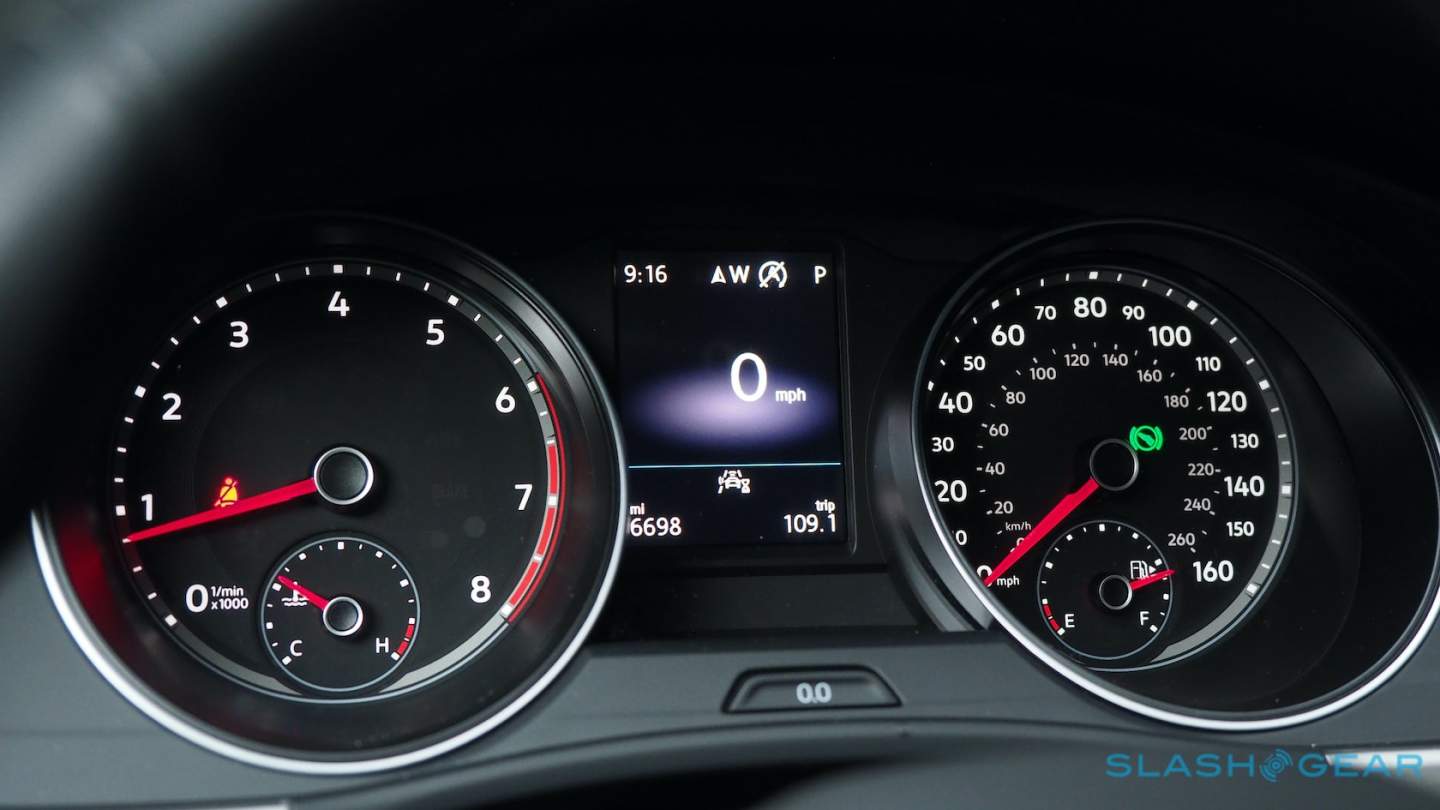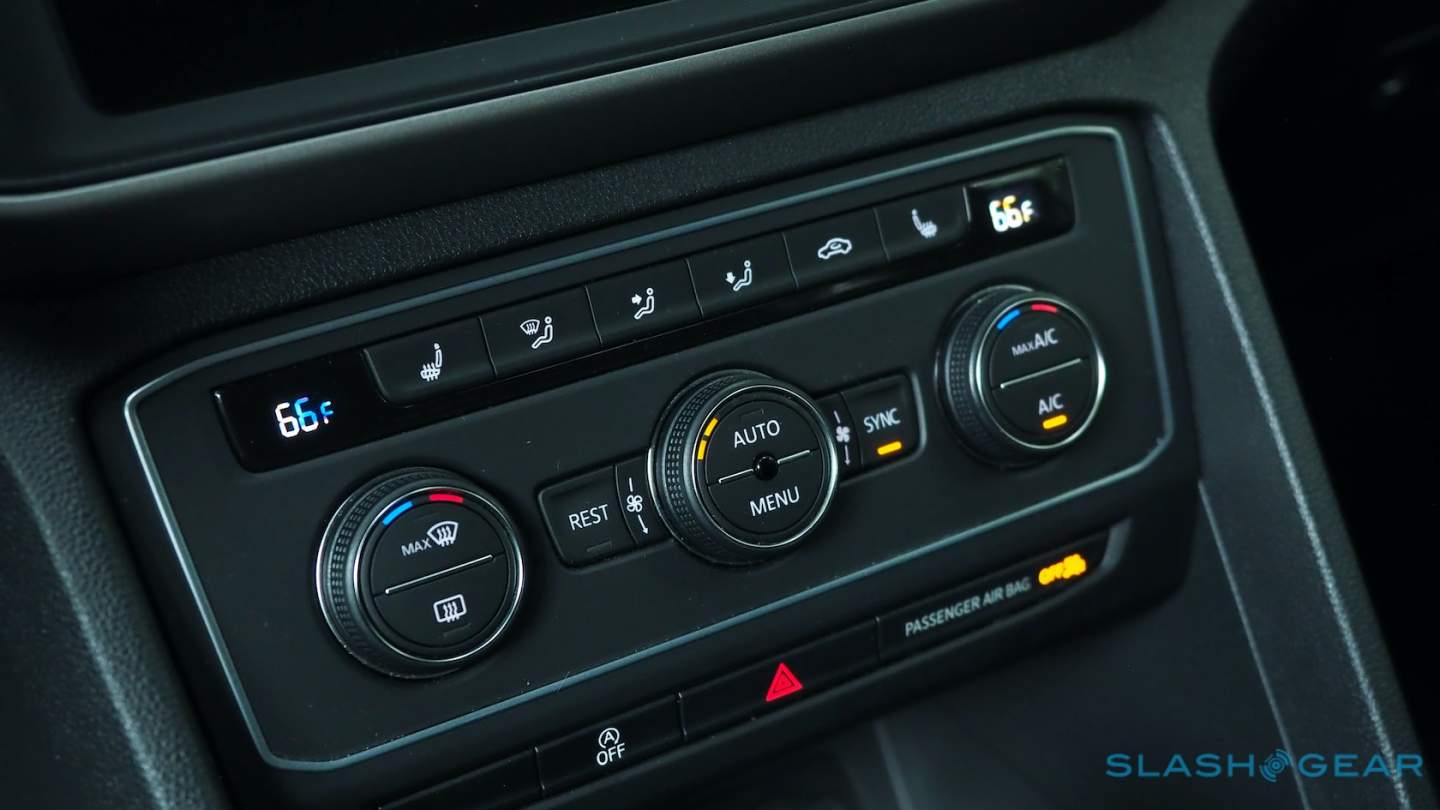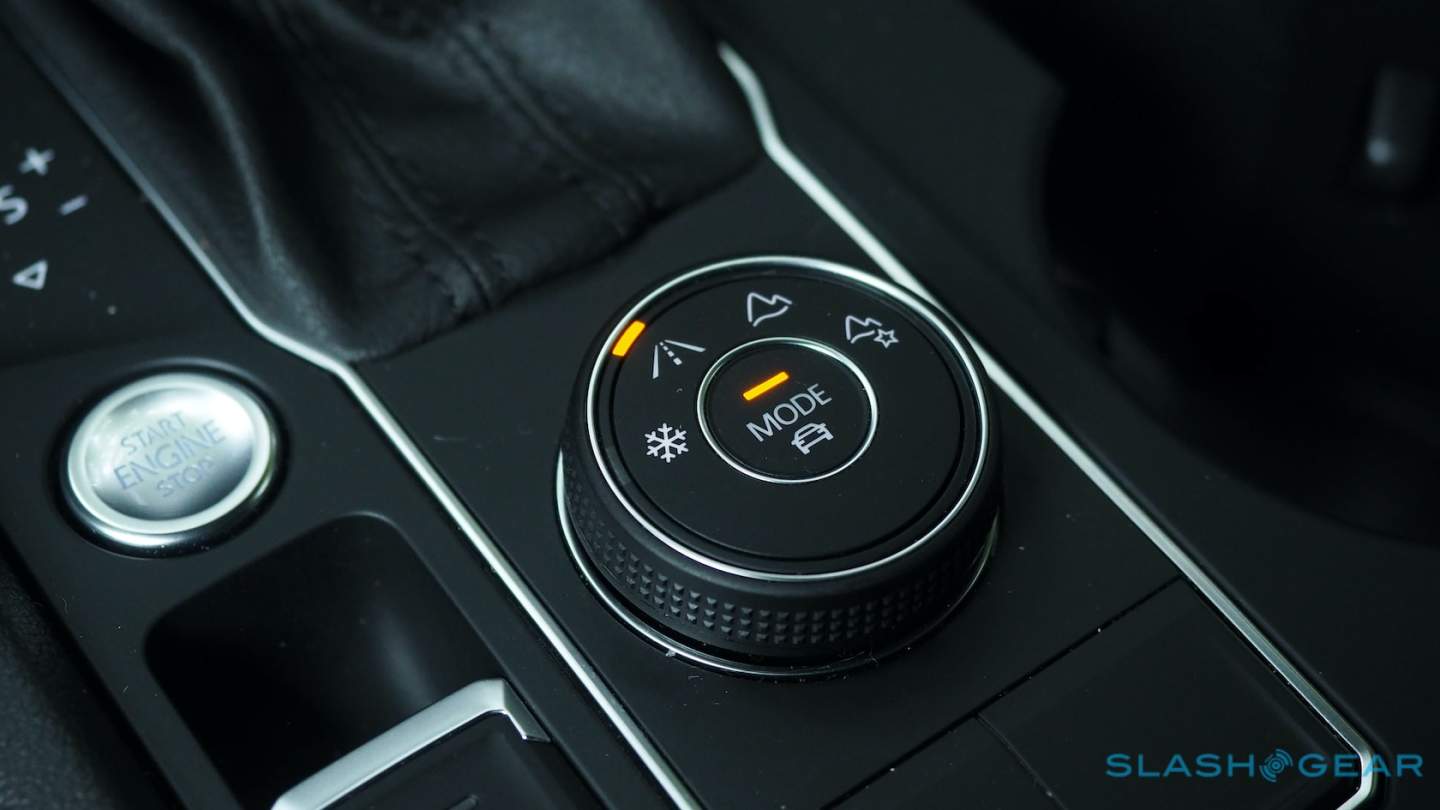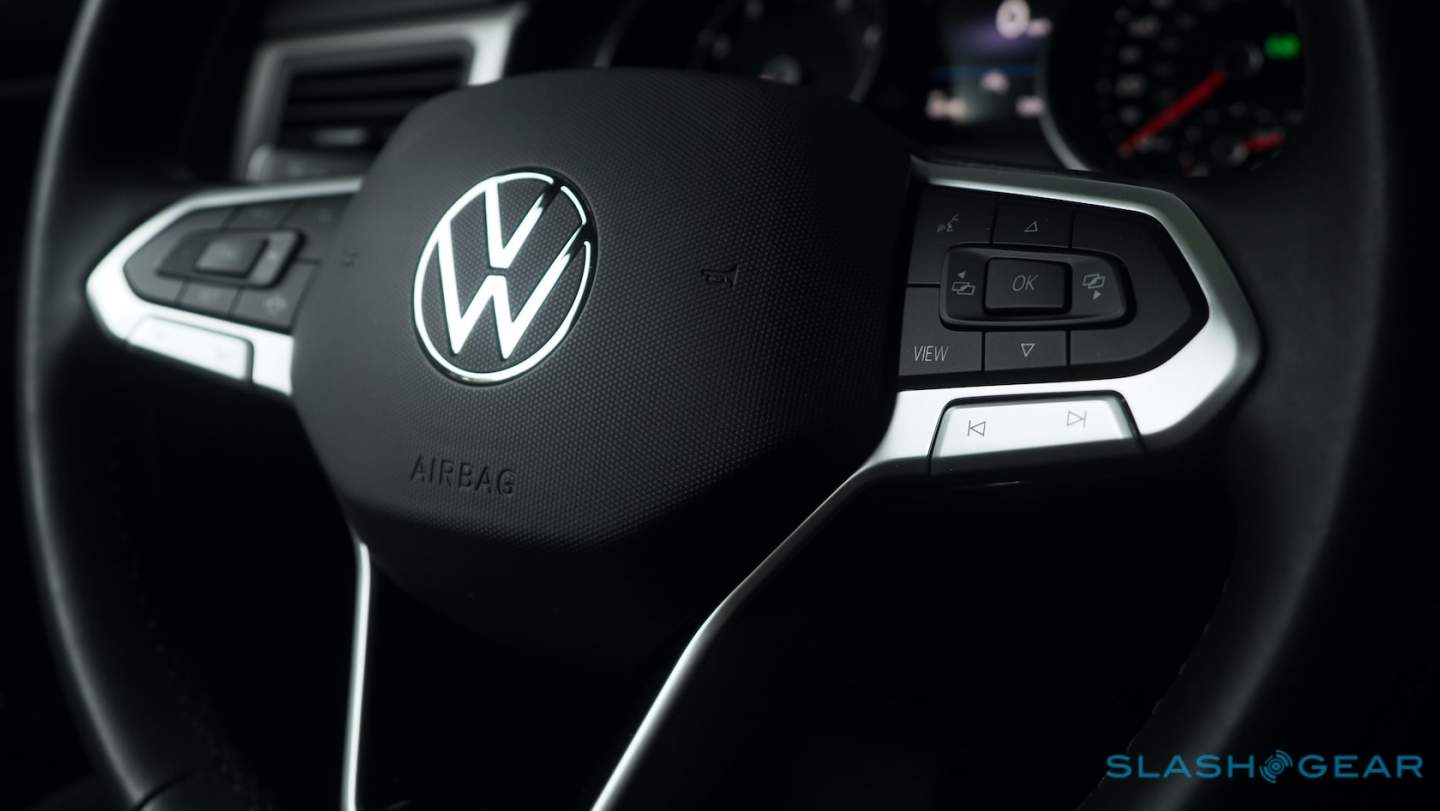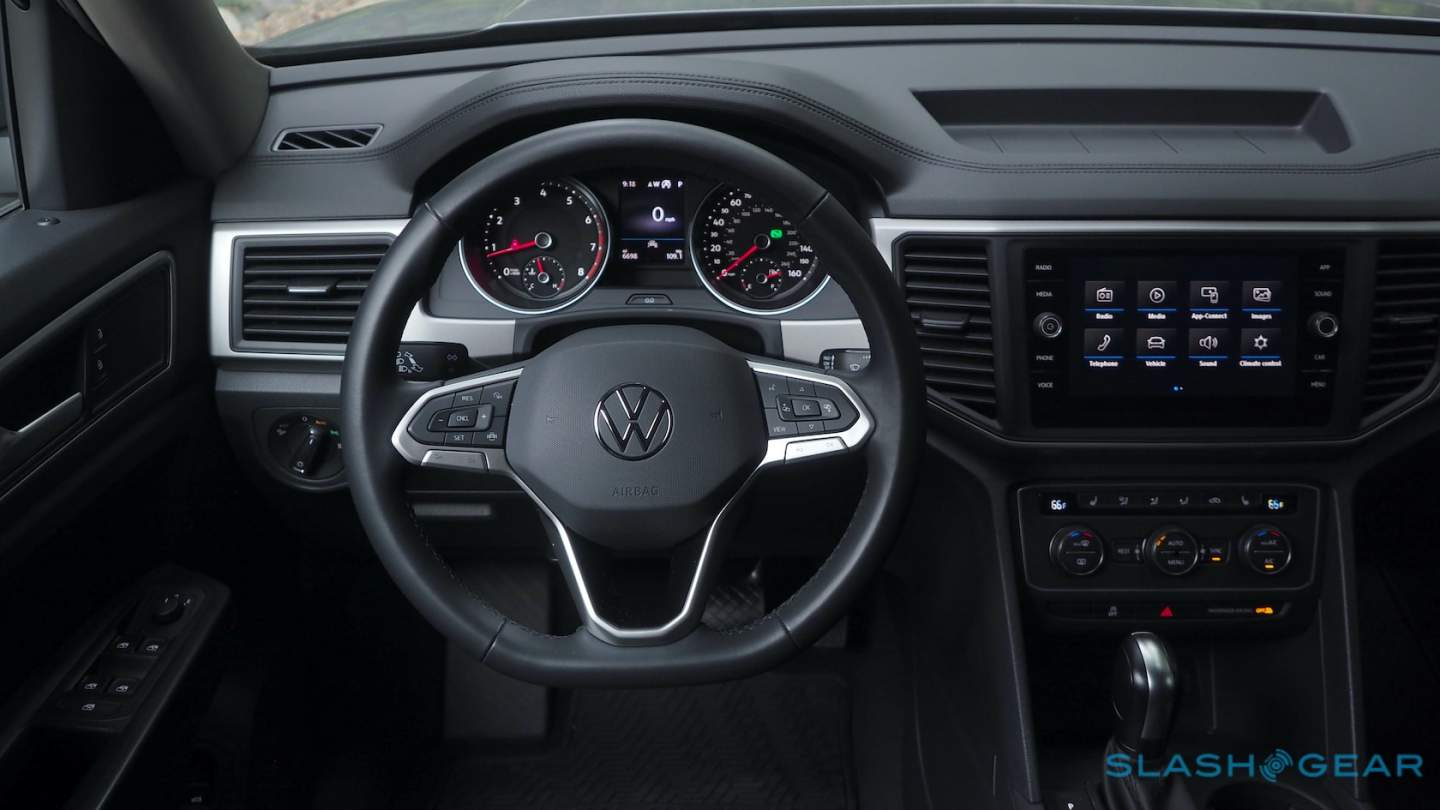2021 Volkswagen Atlas Review
- Handsome and inoffensive styling
- Huge cabin with plenty of space for people and cargo
- Comfortable ride
- AWD now available on the base 2.0T engine
- Interior is dark and uninspiring
- No electrified option and fuel economy is merely average
- Driving dynamics lean toward placid
Before SUVs turned into sports-car aping, head-turning, lavishly equipped status symbols, they were meant to simply be a practical way to transport a family – and its detritus – with maximum efficiency. On that front, the 2021 Volkswagen Atlas is a midsize crossover of the old school, and while that may not add up to sex appeal, it finds its allure in different ways.
There's something solid and hewn about the Atlas' exterior aesthetic, even wearing the Atlas Cross Sport's more engaging fascia. The chunky bumpers, heavily-emphasized fenders, and general visual heft leave the whole thing looking even bigger – and tougher – than it actually is. Where rival SUVs try for sleeker lines, the VW seems content not to mask its outsize proportions.
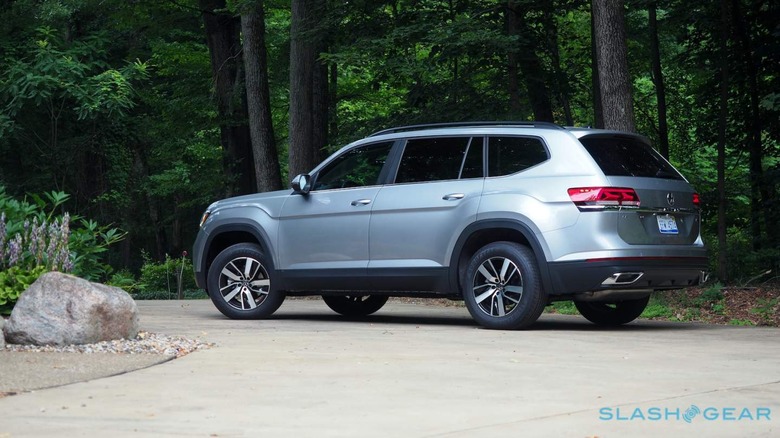
Officially it's a midsize crossover, but it's definitely at the top end of that category in general dimensions. Unsurprisingly that pays dividends in terms of cabin space, with the Atlas spacious across all three rows. Adults – as long as they're not too tall – are welcome in the rearmost seats, which is more than all of the VW's crossover counterparts can legitimately boast.
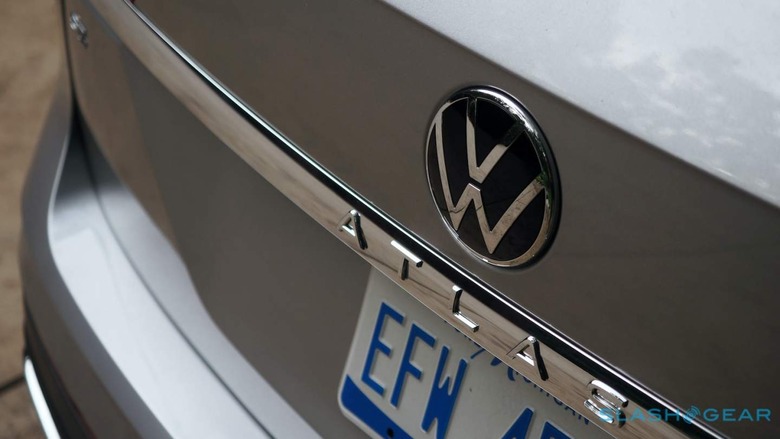
The second and third rows fold down to leave a conveniently flat floor, though you're left to do that manually rather than with the push-button motorized convenience some SUVs offer. Laying them down is fairly simple, thanks to gravity's assistance, though they're heavy and the mechanism takes a considerable shove to push them back into place again afterwards.
The sort of space on offer probably makes that effort worthwhile. With all seats up, you're looking at a healthy 20.6 cu-ft. Drop the third row, and that expands to 55.5 cu-ft; drop them all, and you're looking at a whopping 96.8 cu-ft. VW also offers captain's chairs for the second row, trimming total capacity to six people, though I feel like most people should opt for maximum practicality.
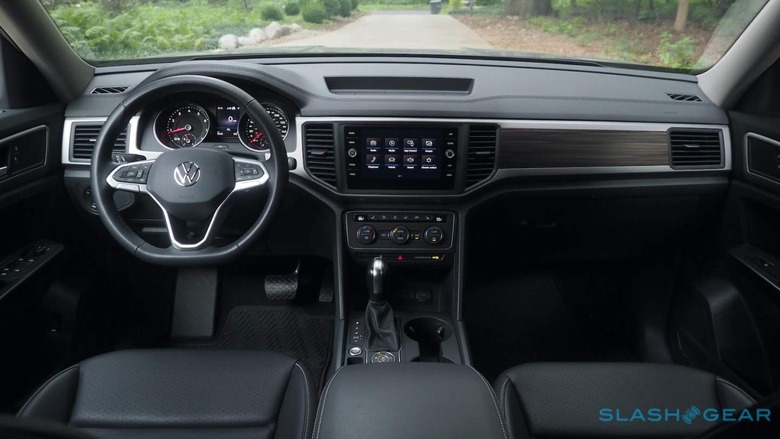
That's more in keeping with the sober interior design. Volkswagen may be flirting with lighter trims and interesting materials in its ID. line-up of electric vehicles, but the Atlas is of the old-school. Lots of black plastic of different textures, mixed with VW-parts-bin switchgear that will be familiar if you've been in a Golf, Passat, Jetta, or indeed any other internal combustion car from the automaker in the past few years.
It feels sturdy but hardly inspiring. VW throws a little silver and wood-effect trim in, but it's nowhere near enough to lift the Atlas out of its sombre, workaday mood. My Atlas 2.0T SE had VW's black leatherette seats, which seem reassuringly wipeable, but overall there's none of the upscale aspirations some of the SUV's counterparts from other brands wear on their sleeves.
The same goes for VW's drivetrain. You can now have the base 2.0-liter turbo-four gas engine with 4MOTION all-wheel drive, rather than having to step up to the thirstier 3.5-liter V6; that's still only offered on the higher trims. Front-wheel drive is still standard, as is an 8-speed automatic transmission.
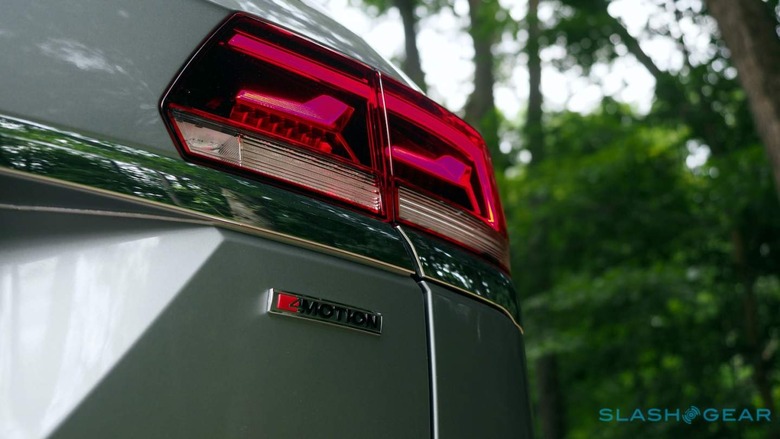
With its 235 horsepower and 258 lb-ft of torque, the Atlas 2.0T epitomizes "sufficiency." The ride on the 18-inch alloys is soft and compliant; VW offers 20- and even 21-inch wheels, but all that sidewall on the smaller rims pays dividends for a cushy cruise. The downside is that this is hardly a sporting SUV, even if pickup in a straight line can be nippy, but I suspect that's a balance most Atlas buyers will be willing to strike.
The V6 kicks up the power to 276 hp and 266 lb-ft, but the increase is so marginal over the turbo-four – and the economy takes an inevitable hit – that I'd probably skip that option. The EPA says the 2021 Atlas 2.0T AWD should do 20 mpg in the city, 24 mpg on the highway, and 22 mpg combined; it didn't take much effort to best those numbers by a few points. What did take some getting used to are the grabby brakes, which demand a deft foot to avoid lurching when you're first behind the wheel.
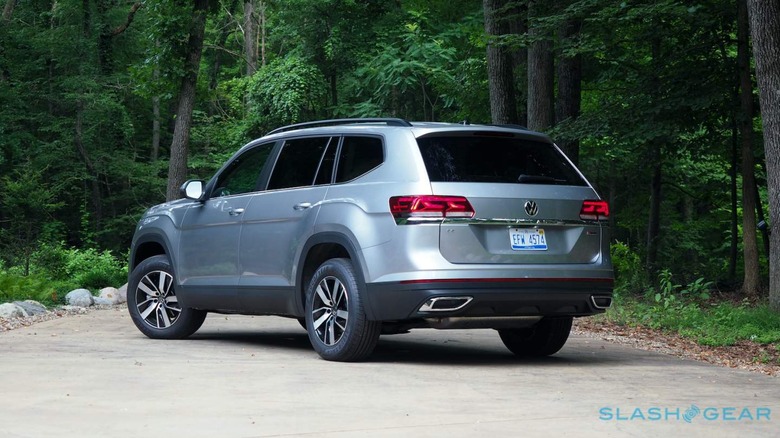
As for the tech, although the base Atlas S has a tiny 6.5-inch touchscreen, the rest of the range increases that to an 8-inch version. There's Apple CarPlay and Android Auto, a wireless phone charging pad on SE trim and above, and five USB Type-C ports. Those in the third row will need either their own portable battery or a long cable, however, as they miss out on the outlets.
A recent juggling means you now get tri-zone climate control on the Atlas SE, and you don't have to add the Technology Package for keyless entry, Volkswagen Car-Net remote app control, or push-button start. There's also blind spot monitoring, forward collision warnings with pedestrian detection, rear traffic alerts, and front autonomous emergency braking. Heated front seats with 10-way power adjustment for the driver are standard on the SE, too, though if you want the fully-digital instrumentation display you'll need the SEL.
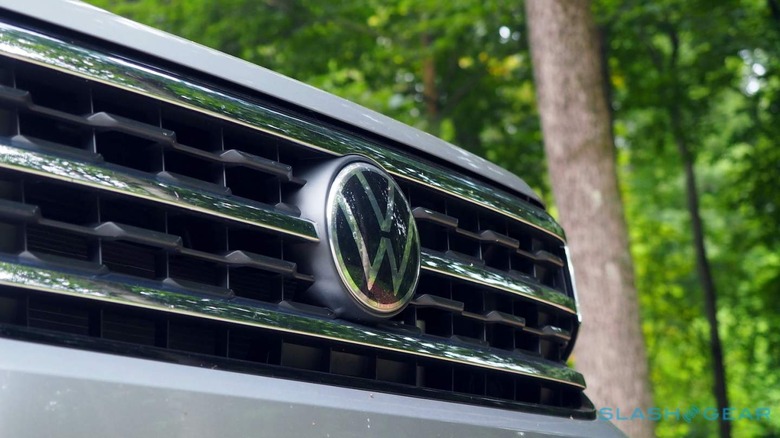
That shuffling of specs – Volkswagen calls it a "model year 2021.5" – makes the 2021 Atlas much better value for money. I'd still avoid the base S trim ($31,555 plus $1,020 destination), but the SE starts at $34,905 plus destination and feels markedly less spartan than before. All-wheel drive is a worthy $1,900 addition.
2021 Volkswagen Atlas Verdict
Rationality rules the roost, here. The 2021 Atlas makes no pretense at being an enthusiast driver's car that just so happens to seat seven: instead, it embraces its practicality. The result is a three-row crossover that isn't as fun to drive as, say, a Mazda CX-9 but has more usable seating; not as memorable or off-road ready as a new Jeep Grand Cherokee L, but a whole lot more affordable.
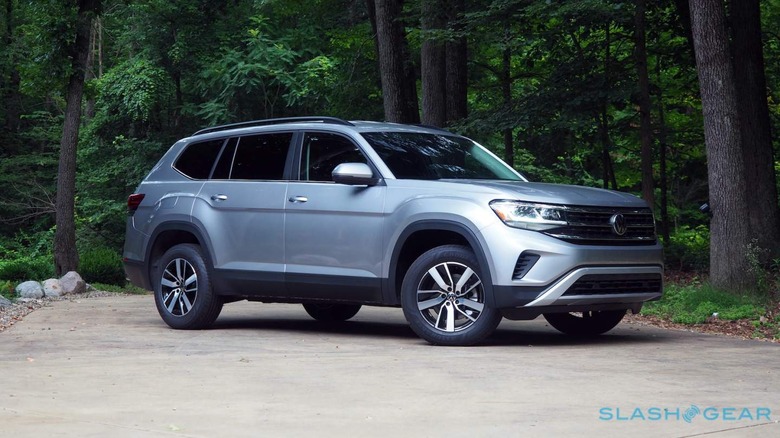
The Atlas isn't as plush as a Hyundai Palisade or Kia Telluride either, but were it my family brood with their sticky fingers and muddy sports kit, I think I'd be happier with them messing up the no-nonsense VW cabin. It seems a little strange to recommend an SUV primarily because the fact it's so forgetable means it's one less thing to worry about, but in a crowded segment the 2021 Atlas is intentionally a stalwart not a standout.

